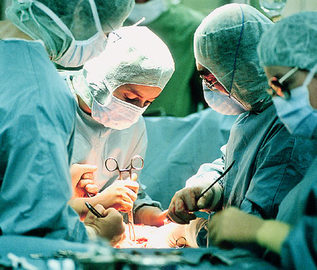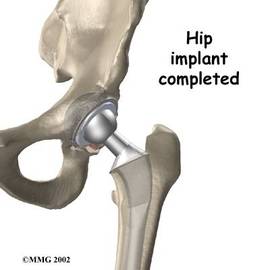Introduction

Hip replacement surgery is normally a very low-risk surgery and the chances of any complication or death is rare. However, if you go through any surgery, whether it is a simple procedure or a long complicated operation, the chances of you ending up with complications and side effects are possible. Same is the case in replacement surgery.
History

Most of the complications that can arise during a hip replacement surgery depend on your medical condition. A lot of unexpected events can happen. Replacement surgeries require you to take general or particular (in special cases) anesthesia. If you are an asthma patient or have an enlarged bone in your nose or any other kind of problems that limit breathing during sleep, you can suffer serious complications. The Anesthesiologist may be forced to put you under intensive care for monitoring after surgery to insure you wake up from induced sleep. There is also the risk of you having allergic reactions to any of the pain or numbing medication they give you during surgery that you are unaware of. Other risks during Hip replacement surgery include blood clots. Any blood clots that form in the leg can travel trough the blood stream straight to your heart or lungs. If they form clots there, then this can easily trigger a heart attack which can be life threatening. A case involving this particular incident was of Bill King, a renowned sports announcer who died after his hip repair surgery due to blood clots blocking the main artery. Even chipped bones during the repair can travel through the bloodstream and pierce the heart which can result in instant death.
Features

Other general risks include infections in lungs and chest. Infections can also occur when removing the original hip bone. Infections are normally caused if, during surgery the wound was left open for bacteria or after surgery the wound was not properly covered for healing. You can even have allergic reaction to the artificial joint. It all sounds serious but all of these cases are rare in Hip replacement surgery. Since the hip is artificial and the joints are held by bolts there is a good chance these joints can loosen up over time. Consult your doctors for regular checkups if you feel any discomfort. You may even feel pressure sores or bed sores due to being bed ridden for too long or having to move around in a chair for too long.
Tips and comments
According to a doctor in Britain the mortality rate after hip replacement surgery is less than 1%. Most fatal consequences are found in cases in which elderly patients undergo the surgery. In 1999 the mayo clinic found the fatal rate to be near 0.08% and the mean average age of these people were 80.9 years. This is due to elderly patients already having pre-existing heart problems that are accelerated during surgery. Hence, always consult your cardio doctors before undergoing any kind of surgery to insure that you are not entering the operating room with any kind of unknown heart problems.